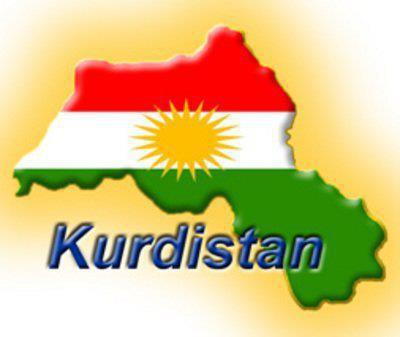Independent Kurdistan: No More Iraqi Passports

ERBIL, Kurdistan Region – The prospect of an independent Kurdish state has kept Kurds occupied, since Kurdistan Region President Massoud Barzani called it time for the Kurds to decide their own future.
Petitions have appeared on the Internet demanding approval for this independent Kurdish State. Kurds began a “We’re all Peshmerga” campaign online, in support of the Kurdish fighters securing the new borders of Kurdistan.
Although support for independence spreads nearly region-wide, many Kurds admit they have never really thought beyond making the ideal come true.
“My only real dream in life will be realized,” Rawand Barzinji, a Kurd living in Holland, simply says. “I will return for good and continue my life in Kurdistan. The nature and the land there are the example of paradise...
“At least it gives me a country. A real country that I can really call my own,” adds Rawand Sirwan, a student in the Kurdistan Region’s capital, Erbil. “We all want to be independent. Many men and women lost their lives for this to happen.”
Freedom is the main feature of independence for Soran Naksbandy, a photographer in Kurdistan’s second city, Sulaimani. “I will be witnessing a free Kurdish state in my lifetime, and that has a long-lasting effect in every aspect of my life. My kids will be born free and die free.”
He refers to a Kurdish saying to show how important freedom is: “Kurds will not break your bones even if they tried to eat your flesh. We prefer a free life in poverty above a rich life without the dignity of being a free man.”
“Like other people deserve their own land, so do we,” says Nechir Herki, a returnee from Europe who lives in Erbil. He expects the new state will offer Kurds more security on all fronts. “We will be a step nearer to a better democracy. We will be more influential in the outside world.”
Not to be part of Iraq anymore -- that is seen as an important result of independence for Kurdish individuals.
“I feel humiliated being forced to be Iraqi,” says Saman Penjwini, a manager for an NGO in Sulaimani. “I will feel more proud and can loudly mention my nationality without feeling ashamed.”
This is echoed by student Zana Ahmed in Erbil. Like others, he thinks Kurds will have less trouble traveling around. “I will release myself from all the troubles that I face because of the Iraqi government. Because I have an Iraqi passport, I can’t go to Europe as easily as people from other countries.”
The expectation is that visas to Western countries will be easier to come by, because Kurds will be looked at differently.
As Ahmed puts it: “Next time I meet someone from abroad I will say that I am from Kurdistan, and not Iraq, so they will not say anymore, ‘Oh you are from Iraq, with its bombs.’”
For accountant Balien Abdul-Kareem from Erbil, the discrimination of Kurds inside Iraq in the past still plays a role. A Kurdish state “ensures that my voice will be heard in a democratic way; and it guarantees that there will be no dictator who kills me as part of ethnic cleansing.”
Not to be part of the Sunni and Shiite opposites is another main effect of Kurdish independence from Iraq, Abdul-Kareem points out. “An independent Kurdistan allows me practice my Islam in a Kurdish, peaceful way, away from Shiite-Sunni hatred,” he says. “It allows me to think the way I want.”
Not everybody is optimistic. Some predict hardship.
Student Halwest Amir from Ranya sees a dark future for the young. “Some will die in the fight. Some cannot study well. Some of our fathers now are fighting, so we should protect our families.”
PhD student Hezhin Harun from Sulaimani admits to being afraid. “We do not have food security,” he says, “I am afraid of the mentality of our neighbors.”
He wonders what will happen if neighboring countries close their borders in protest to Kurdistan’s independence. That will lead to shortage of many products, as most goods in Kurdistan are imported, and to rising prices.
Some think independence will not bring change, since the people would remain the same.
“I do not think we are ready. Just look at our public services, education sector, health, law. It is all in shambles. If we cannot properly manage those, how can we manage a whole country and its budget?” a woman from Sulaimani wonders, wishing to remain anonymous.
Jewan Salman, living in Holland, thinks that independence needs to be learned: “Independence means you take your own decisions. If offered independence, a child can grow and explore its abilities. The child needs a teacher. But that takes time, it is not a matter of days but of years. It will be the same for Kurdistan.”
Source: Rudaw
